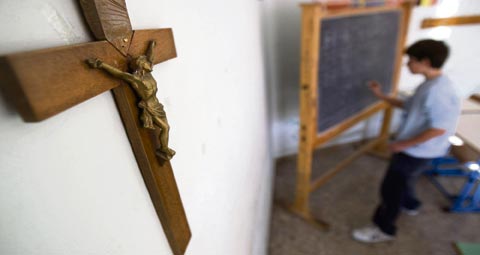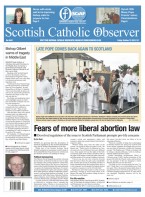July 17 | ![]() 0 COMMENTS
0 COMMENTS ![]() print
print

Ask the important questions of Catholic education in Scotland
This week’s editorial leader
The parents of St Joseph’s Primary School pupils in Milngavie have shown unbelievable determination and resourcefulness to keep fighting for the school to survive long after most would have left it for dead. They have convinced many smart people in politics their cause is just, they have continually had wonderful coverage in the press and their unity has meant their campaign has never faltered whatever the set-backs.
In many ways it’s has been a textbook example of how a community based campaign can achieve great things.
It’s an example that may need to be referred to many times in the years to come. As Scotland’s parish structure is changing, so too is school allocation. Cash-strapped councils are looking for every excuse to cut and there are many who would like Catholic education not to exist, despite the manifest benefits it provides for Scotland.
Andrew McFadyen, one of the parents who has lead the Save St Joseph’s Campaign, put it well when he wrote recently: “One reason educationalists say Catholic schools achieve better results is that they have a supportive ethos involving everyone from pupils themselves to the wider community. The caring values of Catholic education are taken into the world through the remarkable work carried out for charities such as SCIAF and Mary’s Meals.”
Sadly there are many who refuse to see this. So the parents of St Joseph’s have done Scottish Catholics a great service in their example, regardless of what happens to their school.
However, you cannot win an argument without facts. As we reveal this week, only a tiny percentage of pupils of St Joseph’s go on to a Catholic secondary school. That is a fact that’s worth talking about because it raises many important questions about the very nature of Catholic schools in Scotland.
Catholic schools have done a wonderful job making Catholic children from working class families become middle class adults. How good a job they do making them Catholic adults is an open question.
But it’s one that Scottish Catholics need to have good answers for as we face continued questions over Catholic education. What is the purpose of Catholic Education in 21st century Scotland?
The Scottish Catholic Observer will always be the foremost champion of Scottish Catholic education but that means confronting reality as it is, not as we wish it to be.











